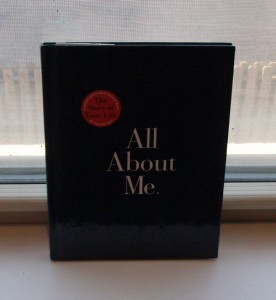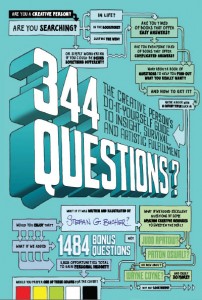I’m attracted to books that help people explore who they are. I’m also attracted to books that help people figure out what they want to do in life. Why? Well, because for years I struggled with what I wanted to do in life. How do you compete with the big dogs when you don’t even know which industry you belong in? Therein lies the conundrum.
When I applied to the University of Illinois, I didn’t know what I wanted to do. Then I was accepted. I went in general, major undeclared because I didn’t know who I was. I didn’t know what I was really good at. And there’s a huge difference between being good at something and then being really good.
The truth is I was afraid of choosing a career. I thought careers were forever and that once you chose one that was it – you had to follow through. There was no turning back. What if I failed? What if hated what I chose? I didn’t want to be one of those people stuck in a career they hated. I didn’t want to be one of those people waking up every day going to a job they despised. I was afraid of disappointing my parents, and worst of all, myself. I didn’t want to ruin my life. It was all rather terrifying.
One day, I realized that nobody could help me choose what I wanted to do in life. No counselor, teacher, parent, or friend. I had to make my own decisions. I had to make some choices. Trying not to make the wrong choice was like treading lightly on a ground filled with land minds; agonizing and stressful.
I chose to major in English/rhetoric with a minor in communications. I didn’t realize until my junior year that I wanted to be a creative writer as well as a journalist, but it was too late. I wasted too much time taking a bunch of classes I didn’t need.
If I knew then, what I know now…
I love English and rhetoric, but there will always be a special place in my heart for journalism, media and communications. I love reporting. I love seeking out the truth. Now that I’m older, I can honestly say that not immediately declaring a major was a mistake. I should’ve double majored in Journalism and English right from the start.
For the last couple of years, I’ve been evaluating my life and reading career-centric books. I believe they are extremely useful for a number of reasons. One, they force you to answer questions you have been avoiding. Two, they make you feel like it’s okay to say how you feel. Three, they encourage you to take risks. Four, they inspire you to take action and everybody knows if you want something in life, you’ve got to take action.
I wish somebody would’ve given me a book like this when I was a teenager. I think it would’ve really made me think about who I was and where I wanted to be.
The books below are excellent in helping people to discover who they are:
The All About Me books are amazing. They are interactive, so you just fill in the blanks. There are questions asking about who you are, what you think and what you would do in certain situations. If you want to learn more about yourself, fill out this book and pick it up again in five years. Your answers will blow your mind. No joke! For an extra challenge, fill out the All About Us book with your significant other.
344 Questions: The Creative Person’s Do-It-Yourself Guide to Insight, Survival, and Artistic Fulfillment is a book I picked up a few weeks ago. I randomly stumbled across it and decided to order it and I’m glad I did. This is a book of questions geared towards designers, but applicable to anybody. There are questions in this book I’ve never asked myself and there are others I can’t seem to stop thinking about. This book is written in interactive flowcharts, so you write your answers directly in the book. It took me about three days to fill it out and during that time, I found myself being rather introspective. It’s extremely helpful if you’re interested in doing a life evaluation or are at a crossroads and are unsure about what to do next.
What I’m trying to say is, figure out who you are, what you want and then trust yourself enough to go for it. If you let your fear get the best of you, you’ll never know who you are or what you’re made of. Take a risk. Take a chance. Believe in yourself!
On that note, I’m off to work on my novel. Thanks for reading! Good luck on your life journey.


